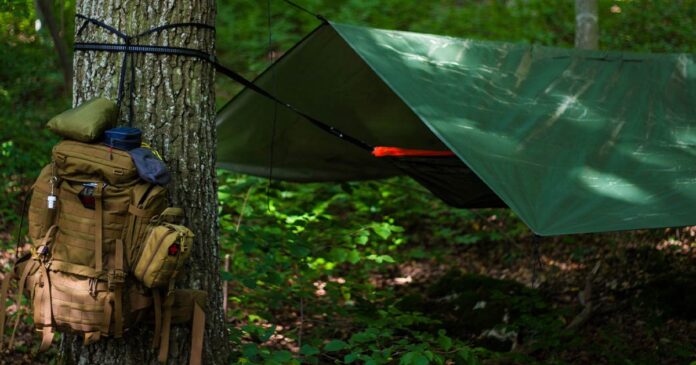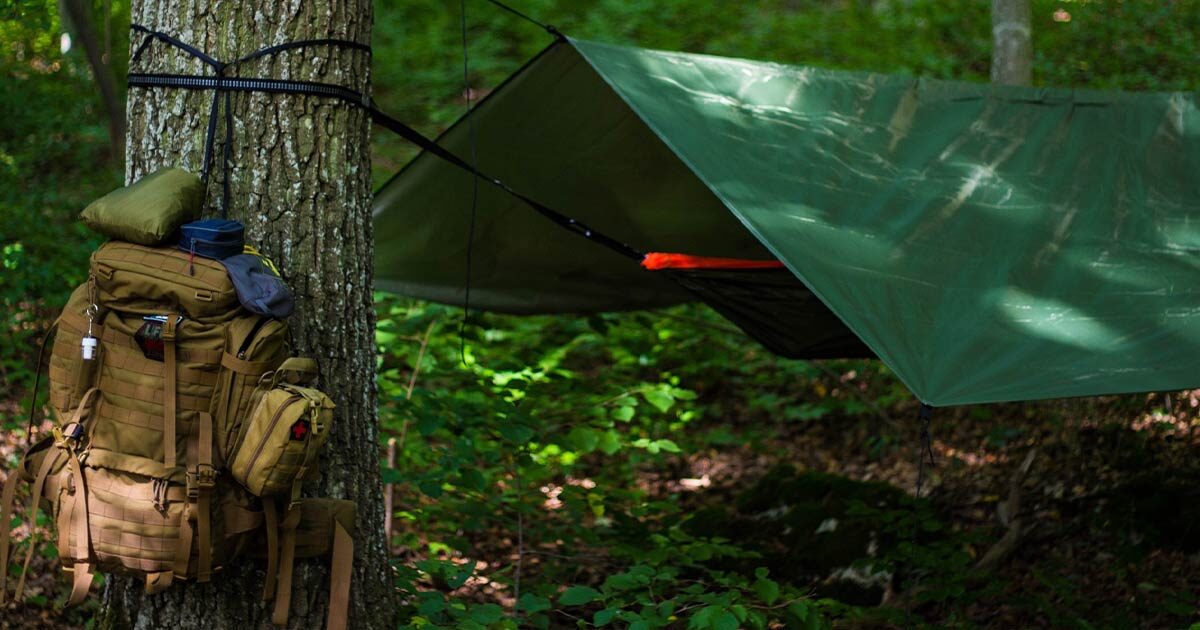
Light backpackers and hikers are often obsessive over their pack weight and often run into problems when trying to decide what to do about shelter.
While building shelters from natural materials is always an option, there are going to be times when the appropriate building materials to construct a shelter might be scarce. If this happens, not having a tent can turn into a real problem, especially during nasty weather. If the weather turns bad, you want a quick and easy way to construct an emergency shelter.
This is where a good Tarp comes into play.
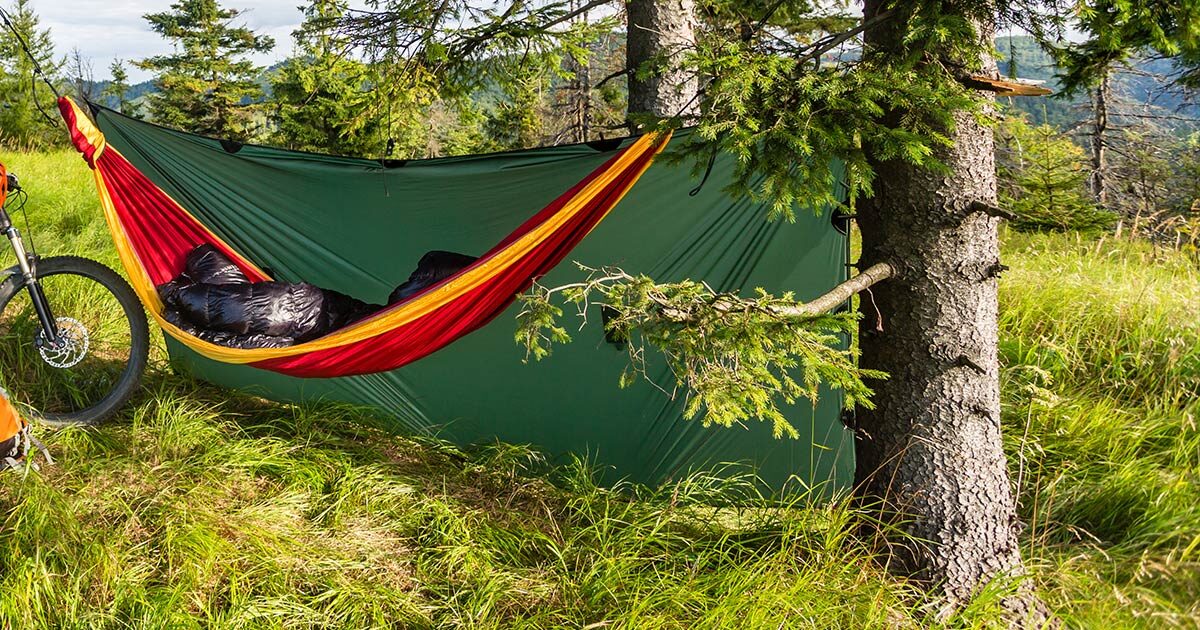
When it comes to camping and survival, a tarp is one of the most versatile tools that you can have in your arsenal of gear. Tarps are lightweight, easy-to-carry, and durable. They can be used to create a variety of different shelters for different weather environments and conditions.
A quality camping tarp is both lighter and cheaper than even the lightest of tents. In my opinion, tarps have a number of advantages that make them a much more attractive option to a light backpacker.
Why Tarp Shelters make a good shelter for camping, hiking, and survival
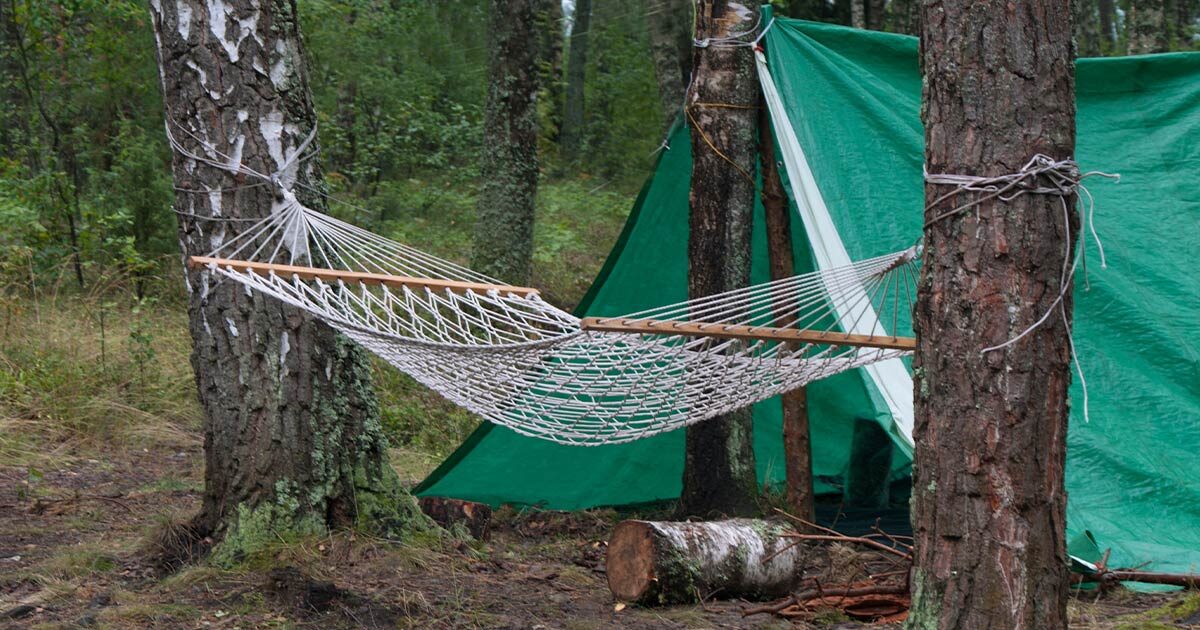
There are several reasons why we keep tarps as part of our gear collection:
Protection from elements
Tarp shelters protect from various weather conditions and are one of the cheapest options on the market. When camping, a tarp shelter can protect you from these elements, keeping you dry and warm.
Tarps are also great in the rain! No one wants the hassle of setting up a tent in a rainstorm and building a waterproof shelter out of natural materials can take hours. A good tarp can be put up in less than 60 seconds and will help keep you dry until the rain stops.
Versatility
Tarp shelters are versatile and can be used in dozens of different ways. With a small amount of paracord and a tarp, you can quickly set up an improvised shelter that will keep you dry and warm with a small reflected fire. Tarps are a great backup plan for when you can’t find natural materials to build a shelter with.
Lightweight
Tarp shelters are lightweight, making them easy to carry in a backpack when camping or bugging out. A tarp is far lighter than almost any other type of backpacking shelter.
Cost-effective
Tarp shelters are cost-effective when compared to tents or other shelters that can cost hundreds of dollars. A tarp is about as affordable as it gets and can be used for multiple purposes. And if you want to get a little fancy, combined with a hammock, they make a great outdoor shelter.
Types of Tarp Shelters
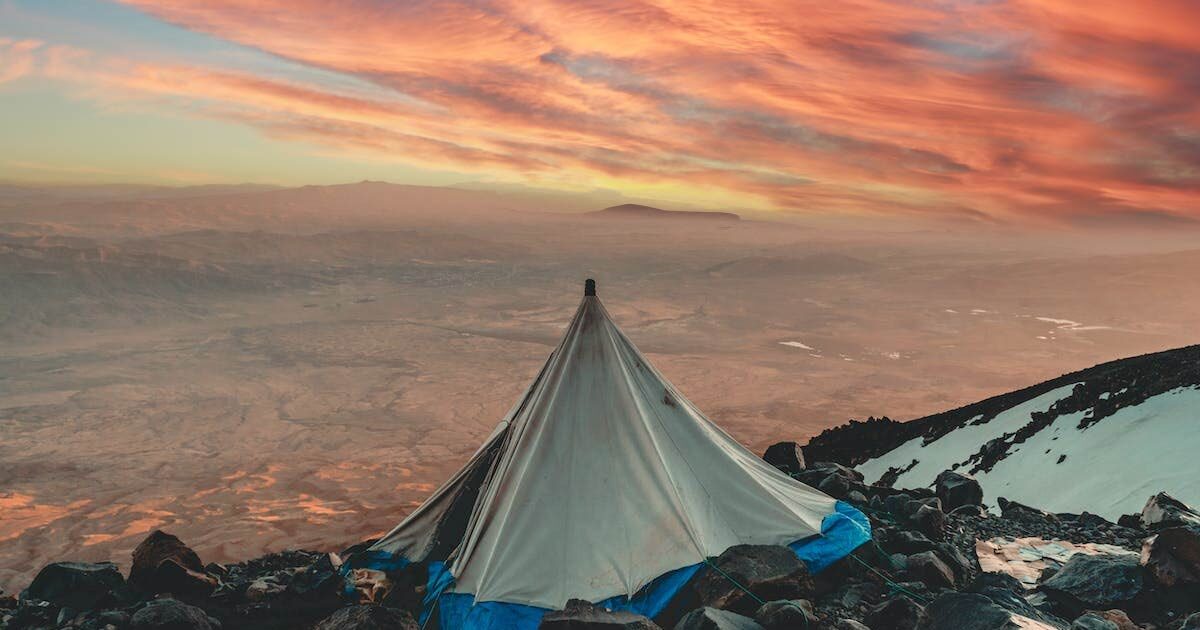
A-Frame Tarp Shelter
An A-frame tarp shelter is easy to set up and protects from rain and wind. It is created by attaching the tarp to a rope tied between two trees. The tarp is then stretched out to form an A shape, and the sides are anchored down using stakes or heavy rocks. This shelter provides ample coverage for sleeping and storing gear.
Lean-To Tarp Shelter
A lean-to tarp shelter is ideal for windy conditions. It is created by attaching one end of the tarp to a tree, and the other end to a support pole, creating a slanted structure. The tarp is then anchored to the ground using stakes or heavy rocks. This shelter is ideal for sleeping and can be customized to fit your needs.
Teepee Tarp Shelter
A teepee tarp shelter is a simple and effective shelter that can be used in various weather conditions. It is created by tying the tarp’s corners to a rope or cord and raising it to form a teepee shape. The tarp is secured to the ground using stakes or heavy rocks. This shelter provides ample coverage and can be used for sleeping or cooking.
Four-Point Tarp Shelter
A four-point tarp shelter is versatile and can be used in different conditions. It is created by tying the tarp’s corners to four trees, then tightening the corners to form a stable structure. Finally, the tarp is anchored to the ground using stakes or heavy rocks. This shelter is ideal for sleeping, cooking, or storing gear.
Hammock Tarp Shelter
A hammock tarp shelter is ideal for those who prefer to sleep in a hammock. It is created by attaching the tarp to the hammock, creating a canopy that provides protection from rain and wind. This shelter is ideal for sleeping and can be customized to fit your needs.
With a small amount of paracord and a tarp, you can quickly set up an improvised shelter that will keep you dry and warm with a small reflected fire.
Tarp Shelter Configurations
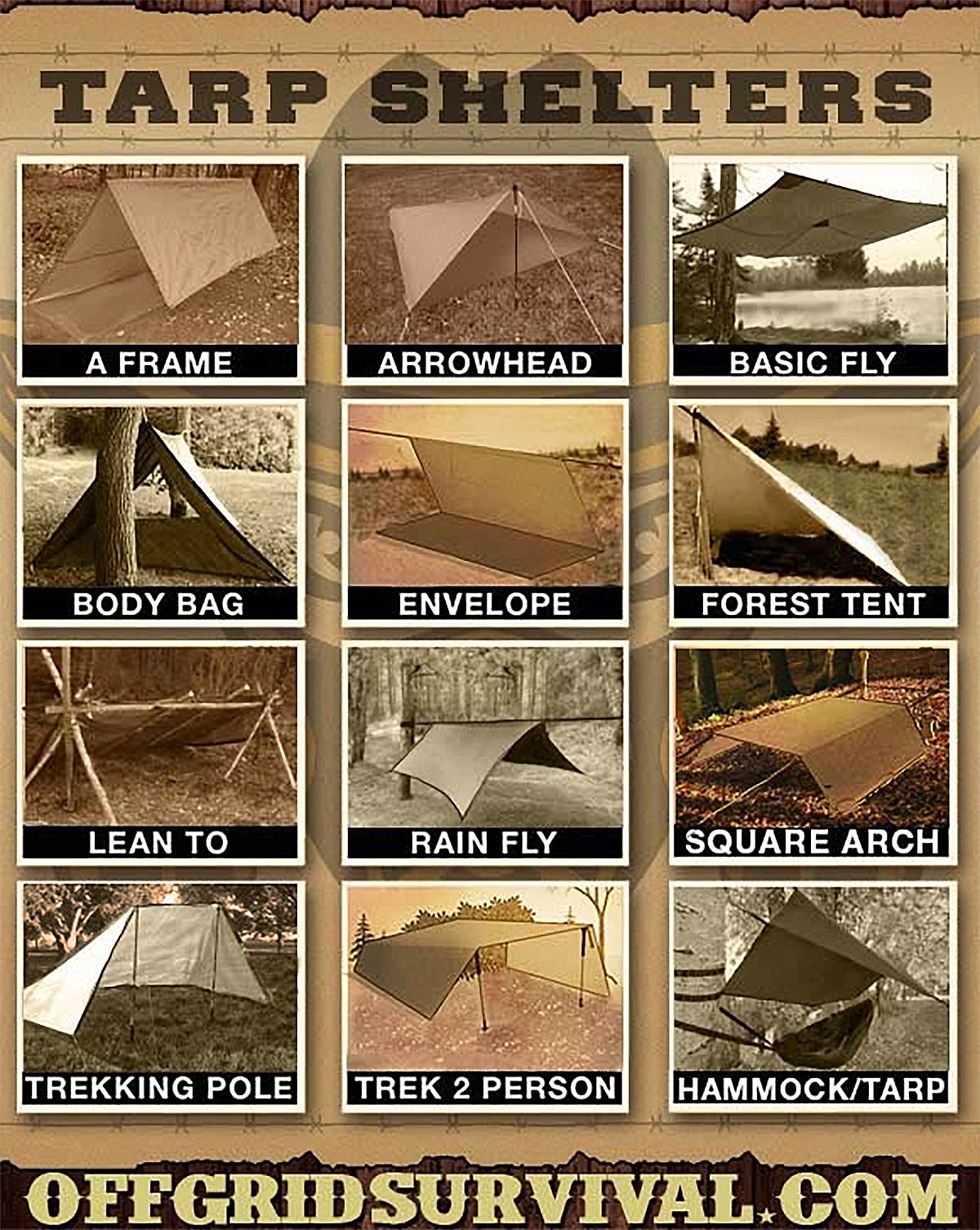
5 commercially available tarps you can buy
- Poly Tarp: Durable, Water Resistant, Weather Resistant
- Basic Waterproof Camping Tarp
- 210T ripstop polyester fabric outdoor shelter tarp
- 100% Waterproof Lightweight SilNylon Bushcraft Camping Shelter
- Canvas Tarp with Rustproof Grommets


